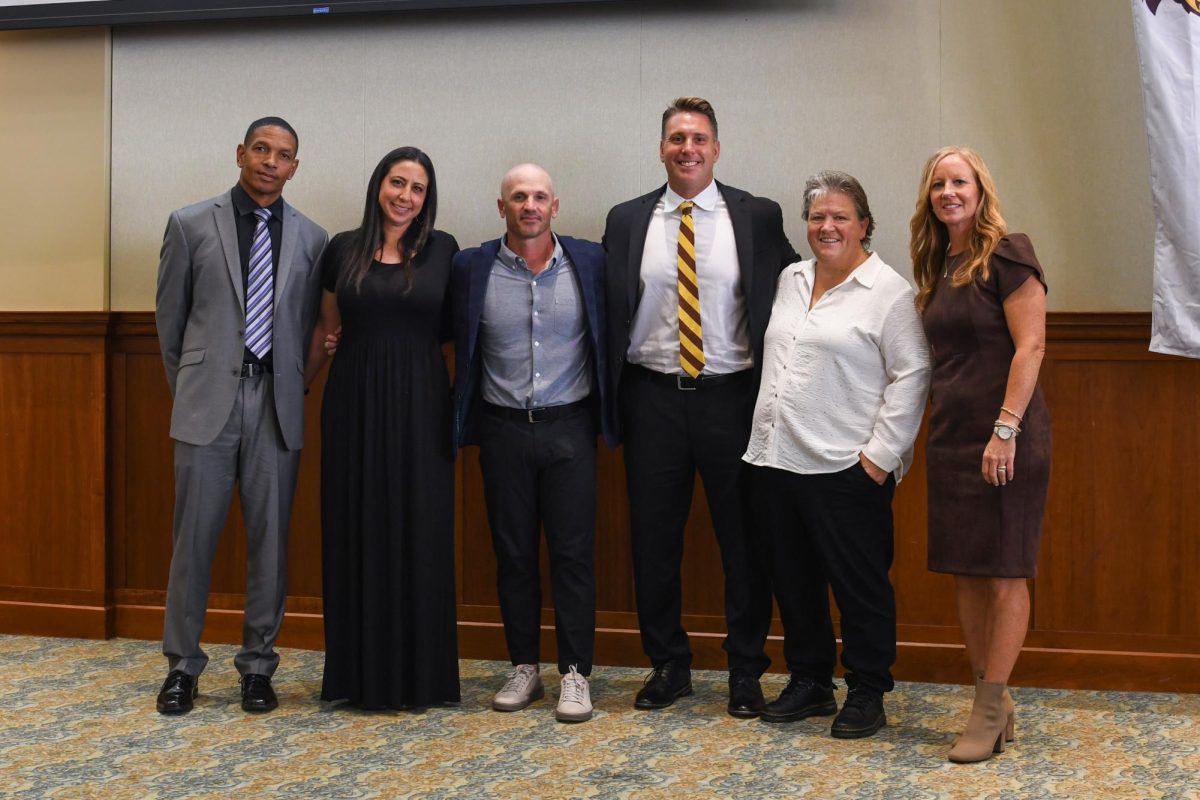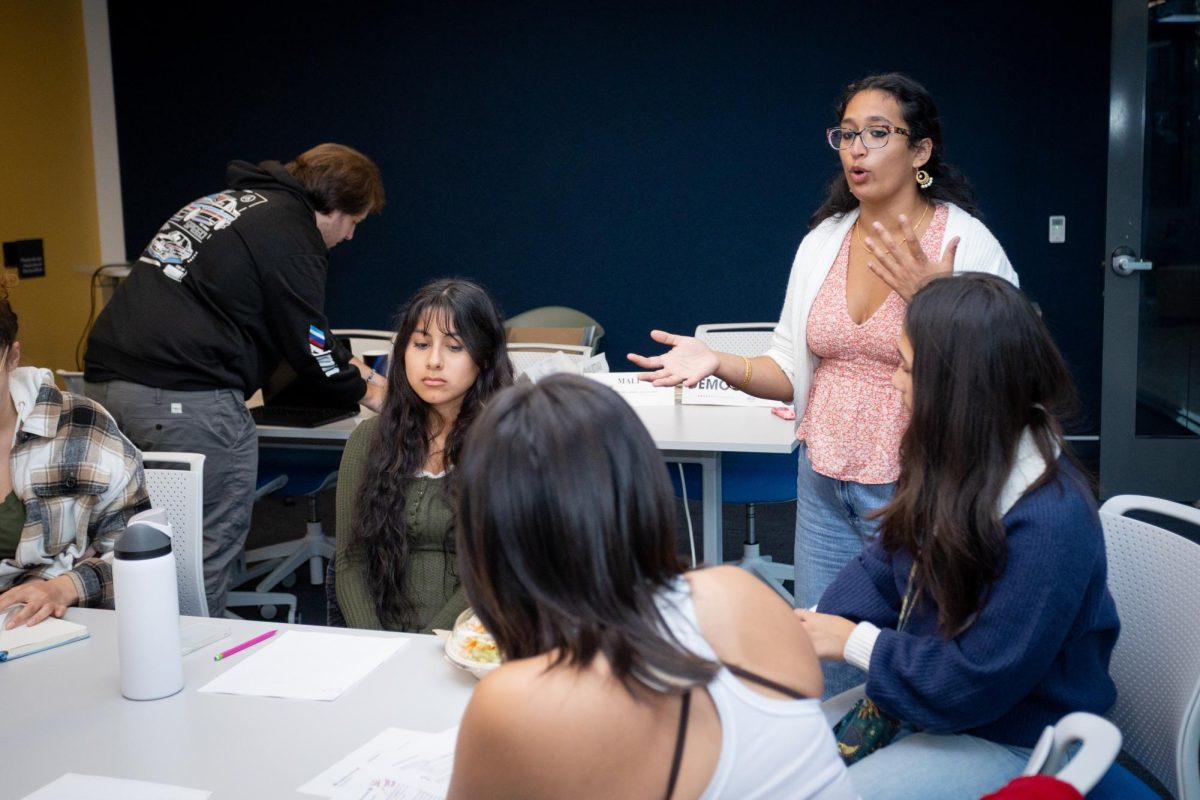When President Lyndon Johnson called for a meeting with Soviet Union Premier Alexei Kosygin to discuss U.S.-Soviet relations in the summer of 1967, he did not expect that the historic meeting would ultimately be held in a New Jersey town called Glassboro.
Neither did Doris Kearns Goodwin, his White House Fellow at the time, who later became an expert historian on Johnson and other presidents. In fact, Monday was the first time she had ever stepped on Glassboro soil.
On President’s Day, Goodwin, a Pulitzer Prize-winning author, shared a lecture on presidential leadership before a capacity-exceeding audience of about 400 students, faculty and fans in the Eynon Ballroom at Rowan University. The speech was part of the university’s yearlong celebration of the 50th anniversary of the Glassboro Summit.
“How the summit ended up in this small town is a splendid story of which we’ve heard little pieces that I just really discovered before coming here,” Goodwin said, taking the stage after a welcome from Rowan President Ali Houshmand.

Goodwin told the story of how, in June 1967, Kosygin was in New York City for a Soviet delegation to the United Nations. When Johnson learned that Kosygin was in the country, he invited him to Washington, D.C., to discuss U.S.-Soviet relations. However, Kosygin didn’t want to go to Washington because of its proximity to a military base.
Glassboro was chosen for the site of the summit because it was a small town halfway between New York and Washington. From June 23-25, the government leaders stayed at Hollybush Mansion with Glassboro State College President Dr. Thomas E. Robinson and his wife. The Robinsons only had 16 hours notice of their home being chosen as the site of the summit.
The same year, Goodwin was a 24-year-old graduate student at Harvard who was selected to be a White House Fellow for Johnson’s administration. Goodwin told the crowd that being a fellow rooted her interest in the presidency.
Despite being an anti-Vietnam War protester who wrote a New Republic article titled, “How to remove Lyndon Johnson from power,” Goodwin soon became a staff member of the president’s. The two became so close that he chose her to help write his memoirs. Goodwin said that she hoped he chose her because she was a strong listener who displayed empathy. She felt that empathy helped her in writing memoirs of presidents who had already died.
“My only fear is, in the afterlife, there is going to be a panel of all the presidents and every single one is going to tell me every single thing I got wrong about them, and the first person to scream out will be Lyndon Johnson,” Goodwin told a laughing crowd.

Throughout her speech, Goodwin described Johnson’s pride in his domestic achievements: Medicare, Medicaid, civil-rights legislation, and his “War on Poverty.” However, whenever Johnson spoke about the Vietnam War, he was “suffused with sadness.” She felt he never found peace in retirement.
“It seemed the hole in his heart from the loss of work was too big to fill,” Goodwin said.
Johnson was afraid that people would forget his accomplishments, Goodwin recalled.
“You were wrong to worry. You have not been forgotten,” she said.
After her 45-minute speech, Goodwin answered questions that had been collected beforehand. When asked what she felt was the most important thing to teach children, she answered, “Respect for each other.”
“The bullying that’s going on in schools, the bullying that’s going on on our national level, the discrimination that’s being shown by something like the Muslim ban is something that kids have to know is something wrong,” she explained.
The event ended with a book signing and a meet and greet. A line of people with Goodwin’s books on Abraham Lincoln, Franklin D. Roosevelt and Johnson tucked under their arms stretched the length of the ballroom lobby for more than an hour after the speech.
Tyler Christy, a senior chemical engineering major and history minor, described the speech as “very inspiring for people who love history.” He had not read one of Goodwin’s books before, but he bought “Team of Rivals,” her book on Lincoln, in the lobby.
“I have been taking [Professor of History] Dr. [William D.] Carrigan’s class recently and he’s really been talking Lincoln up,” Christy said as he waited in line to get his new book signed.
For comments/questions about this story, email [email protected] or tweet @TheWhitOnline.

































































































































































































